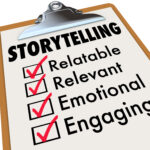By Christie Jahn Hovey, contributing author of Labyrinth Learning’s Building a Foundation with Microsoft Office 2016
A recent comment from one of my advanced Excel students reiterated to me the importance of relating key concepts to student experiences. My student hadn’t fully grasped the concept of Excel PivotTables or how he might use them at his job, but he did understand the data going into his PivotTable and that his boss would find this feature worthwhile. After all, his employer, the owner of a local factory, operated multiple shifts and had hourly wage earners with multiple departments, including those with salaried managers. My student was living the Excel story problem!
Make Key Concepts Relatable
Educators know that relating concepts to students’ frame of reference is critical. The more we teach skills that fit into students’ toolboxes, the better they’ll fare in the workforce. How you help your students make connections from theory to practice can be just as significant. And turning those key concepts into stories often helps them see the relevance of their learning.
I begin my =IF statements lesson in my introductory applications class by asking students what they’d bring along for the day if they knew the forecast called for rain. Not surprisingly, most said they’d bring an umbrella and a raincoat.
We then walk through the =IF statement story problem using words:
If the forecast called for rain, then we would bring umbrellas and raincoats.
If the forecast did not call for rain, then the likelihood of us carrying around umbrellas and raincoats is zero.
When it comes time to apply the =IF function using cell references and values, students get it!
Make a Connection
One of my favorite Access lessons to teach is the use of wildcards in a search. I begin by asking students how many have ever played cards and, of course, they have. Game on! There’s the connection. Students will pay attention because they want to see what’s in it for them.
We’ll move through a series of questions related to wildcards and their use in card games. We’ll talk about how having multiple wildcards can increase the changes of winning the game. And we’ll play a game using the ? and * wildcards to create words that start with b and end with k. They’ll see how more words can be created with the use of the asterisk. The connection from the known (card game) to the unknown (Access wildcards) is made.
In career and technical education, the job of providing value to students may be easier than in teaching areas that are not so hands-on or competency-based. Reflect on your own teaching experiences. Aren’t you more motivated to do something when you know what’s in it for you?



